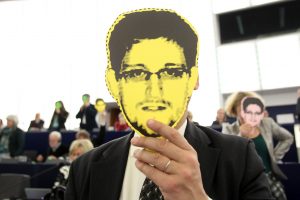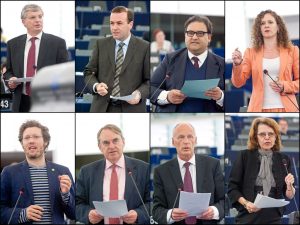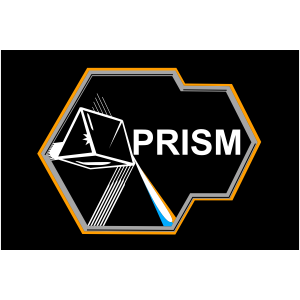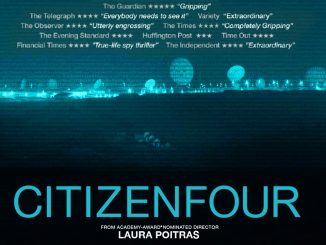
Snowden is a biographical film released in 2016 about Edward Snowden, who joined the CIA after being drafted into the army in 2004 and then sent to war in Iraq, where he was unfortunately injured in both legs during training and discharged. He then joined the NSA, where he accidentally discovered the government’s post-9/11 mass surveillance program on citizens’ phones and social networks and leaked a large number of classified documents. After the incident, Snowden was wanted by the authorities and went on the run. This is a film based on an actual event – the breaking news of 2013: the PRISM program. Edward Snowden, a former CIA employee and outsourced technician for the US National Security Agency. Wanted by the US and UK for disclosing secret NSA documents on the PRISM surveillance program to the British newspaper The Guardian and the US newspaper The Washington Post in Hong Kong in June 2013, Snowden subsequently fled to Russia to seek asylum. This article will discuss the story behind the film, the politics behind the case, the social reactions it brought about, as well as focusing on and reflecting on the issue of internet security, Data collecting,surveillance,and human rights.

Politically, the government’s attitude towards the wiretapping incident was positive for the purpose of protecting their country. It is a protection against terrorism. They claim that the need to find a balance between individual privacy and the right to collective security. The President of the United States during the time of the Snowden affair was Barack Obama, who had responded on behalf of the government that it was a modest invasion of privacy, which he believed was legal and justified to identify terrorists plotting to attack the United States. Obama claims stressed that the government does not collect information on individual callers or eavesdrop on American conversations without authorisation. He argued that an open discussion on the balance between privacy and security is “good for democracy”, saying at an event in Northern California: “If every step we take to prevent acts of terror is on the front page of a newspaper or television, then surely those who seek to do us harm will be able to bypass our prevention efforts. That’s why these things are classified. But that’s why we have congressional oversight (Finn & Nakashima, 2013). Similarly, one of the Britain authorities has claimed that Snowden’s disclosure of this information is a “gift” to terrorists to enhance their security communications and understand how they are being monitored (Hale & Lowe, 2019). In the eyes of many who work for the intelligence agency, Snowden is a traitor, and some see him as a spy.

However, many people do not buy the government’s argument that PRISM is a form of surveillance that crosses the line and involves a violation of human rights. prism, wiretapping, data collection, data tracking, any trace left by anyone on the Internet can be used by algorithms to infer more personal information such as personal tastes, habits, interests, political preferences, religion, etc. (Bernal, 2016). The government’s supposed protection for security purposes is whether there is more tracking for people who disagree and have different beliefs. Whether the government, supposedly for security reasons, has more tracking against people who disagree and have different beliefs is a form of discrimination and lack of respect. It is also a control and suppression of freedom of expression for the public concern of being surveillance. Many in the public see this as contrary to the values of the pursuit of freedom and condemn the nation, where is the liberty?

WeChat AliPay | Original photo via Soho | John Pasden | Flickr
How to draw the line between security surveillance and invasion of privacy? How to weigh the interests of national security against the rights of individuals? Data collection in a similar vein to the Snowden affair is still happening. In the wake of the 2020 outbreak of the COVID-19, WeChat, the social networking software of one of China’s tech giants, Tencent, has developed a big data formation program for the government to collect information on everyone’s travels. If one person is infected, hospitals and the government will be able to find all the places that person has been to and identify close contacts within the first hour. The practice has also been highly controversial, with the government claiming they are doing it for security purposes and for epidemic control, while the public feels they are being watched at all times.
According to Anderson (2015), Two US surveys by the Pew Research Center presented that:Most adults disagreed in the 2014 research that government “monitoring” of Internet activities is a good idea, and those who had heard of government surveillance were more inclined to find flaws in government oversight of the Internet. Eighty percent of adults in the United States say that government surveillance of phone and Internet communications should be a worry, while only eighteen percent disagree. More than a third of respondents who had heard about monitoring programs took at least one measure to hide or shield their information from the US government, according to the 2015 survey.

Data collecting has become the new form of surveillance, breaking away from traditional listening devices, camera surveillance, trackers, etc. And the reach of commercial data available just through some US tech giants such as Google, Facebook, Yahoo, Apple, etc., is immeasurable (Greenwald & MacAskill, 2013). The data collection and analysis is quite clever and fast, a level that is able to spy on what people are thinking or are about to consider. This regulation degree is hardly reminiscent of George Orwell’s 1984, the role of the Thought Police: the Thought Police is the electric curtain that monitors and finds people whose thoughts are not in line with the authorities and arrests them. The purpose of this is not only to control what people say and do but also to control their minds. This analogy may be a bit extreme, but if we look at it from a humanitarian point of view, everyone should have the freedom of thought, religion, and personal will.
The execution of the Prism program is what runs counter to the ethical considerations just mentioned; the projection of data analysis is likely to draw up a person, and the practice of speculating on algorithms that are supposed to be a possibility is undoubtedly an implicit form of control. The state does so with the attitude that it would instead spy on everyone than on anyone who is a potential risk. And what is considered a potential risk, and it is clear that a dissenter is a potential risk. How do you avoid not being targeted? Then don’t be a dissident. No one wants to be at risk or to be the one who is wronged, which again coincides with the practice of the Thought Police, where discrimination and dictatorship come from. This is why the Prism affair is so strongly contested.
It is unprecedented to look at the Snowden affair from a different perspective. In this day and age, the Internet is an indispensable tool, and we rely on it. Any event is prone to a huge online and media ferment. In addition to the two-tiered assessment of Snowden himself, the lively discussion of Prismgate, and the conspiracy theories that abound of all types. When I typed Snowden into the search bar, it was followed by a good association of questions I might want to google, followed by an overwhelming amount of commentary on who is right? And who should we listen to? This is a dilemma that will persist in the internet age.
References:
Hale-Ross, S., & Lowe, D. (2019). Terrorism and State Surveillance of Communications (1st ed.). Routledge. https://doi-org.ezproxy.library.sydney.edu.au/10.4324/9780429399046
Bernal, P. (2016). Data gathering, surveillance and human rights: recasting the debate. Journal of Cyber Policy, 1(2), 243–264. https://doi.org/10.1080/23738871.2016.1228990
(Greenwald & MacAskill, 2013)
Greenwald, G., & MacAskill, E. (2013). NSA Prism program taps in to user data of Apple, Google and others. the Guardian. https://www.theguardian.com/world/2013/jun/06/us-tech-giants-nsa-data.
(Finn & Nakashima, 2013)
Finn, P., & Nakashima, E. (2013). Obama defends sweeping surveillance efforts. The Washington Post. https://www.washingtonpost.com/politics/obama-defends-sweeping-surveillance-efforts/2013/06/07/2002290a-cf88-11e2-9f1a-1a7cdee20287_story.html.
